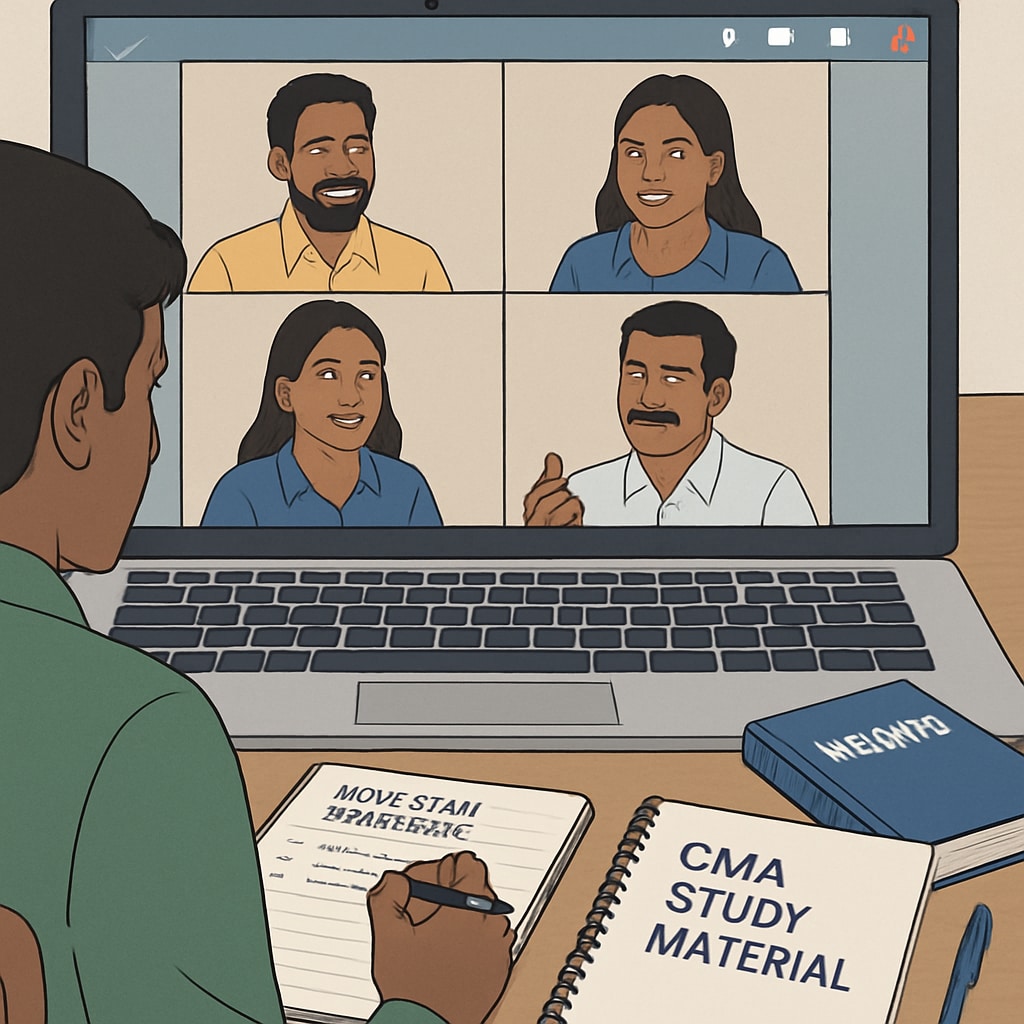For many CMA USA (Certified Management Accountant) aspirants in Kerala, the journey toward earning this globally recognized credential can be both exciting and daunting. One of the most effective ways to overcome challenges, enhance learning, and stay motivated is through peer networking. In this article, we’ll explore the importance of building a CMA USA peer network in Kerala, the benefits of collaboration, and practical steps to create a strong regional learning community.
Why Peer Networking Matters for CMA USA Aspirants
Preparing for the CMA USA certification is demanding, requiring mastery of complex financial and managerial accounting concepts. Peer networking can play a vital role in this process. By connecting with other CMA USA learners in Kerala, candidates can share knowledge, exchange study materials, and offer emotional support. Moreover, a peer network helps individuals stay accountable and committed to their study plans.
According to studies on collaborative learning, students who engage in group discussions retain information better and develop critical thinking skills more effectively. For CMA USA aspirants, this translates into a deeper understanding of exam topics and improved problem-solving abilities. Networking also opens doors to professional opportunities, as peers often share job leads, internship opportunities, and career advice.

Steps to Build a CMA USA Peer Network in Kerala
Creating a regional peer network doesn’t happen overnight. It requires effort, planning, and a clear vision. Here are actionable steps to help you get started:
- Identify Like-Minded Aspirants: Start by reaching out to fellow CMA USA learners in your coaching classes, online forums, or social media groups. Platforms like LinkedIn and Facebook often have dedicated groups for CMA USA candidates in Kerala.
- Host Regular Meetups: Organize weekly or monthly study sessions, either in person or virtually. These meetups can focus on specific topics, mock exams, or Q&A sessions.
- Share Resources: Collaborate to pool study materials, such as textbooks, lecture notes, and practice tests. This not only reduces costs but also ensures everyone has access to high-quality resources.
- Engage with Professionals: Invite CMA-certified professionals to join your network or host guest lectures. Their real-world insights can provide valuable context to theoretical concepts.
- Leverage Technology: Use tools like WhatsApp, Zoom, or Slack to facilitate communication and share updates. Create a shared calendar to keep track of deadlines and group activities.
By following these steps, you can lay the foundation for a thriving peer network that supports its members throughout their CMA USA journey.

The Long-Term Benefits of Peer Collaboration
Beyond passing the CMA USA exams, peer collaboration offers long-term benefits for professional growth. For example, strong networking skills are highly valued in the corporate world. Being part of a peer group teaches you how to communicate effectively, resolve conflicts, and work collaboratively—skills that are essential for leadership roles.
Additionally, the relationships formed within your peer network can extend beyond the exam phase. These connections can evolve into lifelong professional associations, offering support as you navigate your career. Whether it’s sharing job opportunities, discussing industry trends, or simply exchanging career advice, your CMA USA peer group can become an invaluable resource.
Conclusion
Building a CMA USA peer network in Kerala is not just a strategy for exam success; it’s an investment in your professional future. By fostering collaboration, sharing resources, and supporting each other, aspirants can turn individual challenges into collective achievements. If you’re a CMA USA learner in Kerala, consider taking the first step today—reach out, connect, and start building your network. Together, you can achieve more.
Readability guidance: This article emphasizes short paragraphs, clear subheadings, and practical advice. The use of transition words ensures smooth reading, while lists and examples make the content actionable. Peer collaboration is framed as both an academic and professional strategy, offering immediate and long-term benefits.


